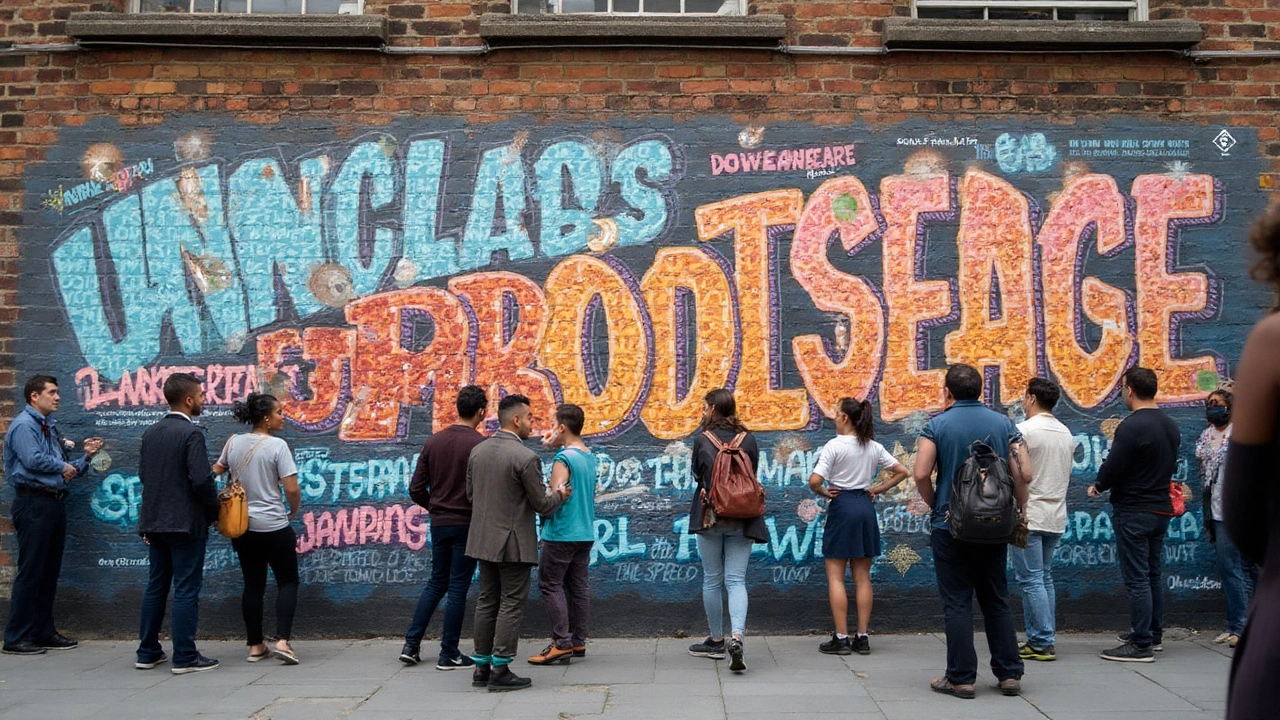You’ve probably heard someone say “he bedded her” or “she bedded him,” maybe in a movie, a spicy novel, or whispered at the back of a party. The phrase catches the ear—graphic, old-fashioned, a little mysterious. But what does it really mean to bed someone? Strip away the drama, and it’s a euphemism: it means to have sex with someone. Simple, right? Yet how people use the phrase, where it came from, why it still pops up, and what it says about relationships and society—there’s a lot more going on under the covers.
Tracing the Roots of "To Bed Someone": From Shakespeare to TikTok
If you went back in time to the late 1500s, you’d hear “to bed” used pretty literally. In old English plays, characters would say things like, “I will to bed with thee,” with only a thin veil over the meaning. Shakespeare drops the phrase in several plays—think of "Othello," where beds and bedding carry signals of intimacy, betrayal, and scandal. Back then, beds weren’t just for sleep. They symbolized relationships, marriages, affairs—everything people wanted to gossip about but couldn’t always spell out. Most households had one or two beds, shared by several people and sometimes visitors, so who bedded whom was public business.
Fast forward to Victorian England, and suddenly everything about sex gets whispered or left unsaid. Language gets coy, obsessed with politeness. “To bed someone” turns into a wink and a nudge—a way to talk about intimate stuff without actually talking about it. People loved double meanings. Even in the 20th century, you had Hollywood films dodging censorship with clever word play because they couldn’t show two people in the same bed unless they were married. That old-fashioned flavor stuck around, making “bedded” sound both classy and taboo at the same time.
These days, slang moves fast. You might hear “hooked up,” “got together,” “slept with.” "Bedded" feels a bit retro or even theatrical. But it hasn’t disappeared—it’s still showing up in novels for flair, tabloids for implied scandal, and dating apps for playful innuendo. There’s a dash of irony and drama with "bedded," as if the speaker is in on a joke from the past. Even the youngest TikTokers, hungry for new-old trends, occasionally revive these phrases for laughs or to play with nostalgia. Language is a living thing. Phrases that felt stuffy in one decade can sound cool or cheeky in the next.
The Psychology of Euphemisms: Why Aren’t We Just Saying "Sex"?
If everyone knows what “bedded” really means, why don’t we just say it outright? It turns out, the answer has a lot to do with psychology, social norms, and the way people navigate awkward or taboo subjects. Euphemisms soften things—we use them when we want to be polite, avoid embarrassment, or keep a little distance from what’s being described. It’s a kind of linguistic armor. Words like “bedded” or “slept with” give us room to talk about sensitive things without sounding blunt, rude, or clinical.
Here’s something funny: language experts have found that the more taboo a subject is, the more words people invent for it. English has over one hundred idioms and slang terms for sex, from "made love" to "got lucky" to "did the deed." Each phrase carries its own vibe. “Bedded” sounds old-school and a little theatrical; "hooked up" feels casual; "made love" suggests romance or commitment. The words you use say a lot about your attitude, your social group, even your age. In a recent linguistics survey, participants guessed people’s ages with surprising accuracy just by hearing which phrase they used to describe intimacy.
Researchers have also noticed something wild: when people talk about their own sexual experiences, euphemisms go up, but when talking about celebrities or gossiped-about strangers, the language gets more direct. There’s a protective instinct—using fancy phrases like "bedded" puts up a barrier between the speaker and the story. Some therapists suggest that couples who use clear language about sex have healthier communication, but everyone defaults to euphemism from time to time—especially when things are uncomfortable or uncertain.
| Phrase | Common Usage | Implied Tone |
|---|---|---|
| Bedded Someone | Books, gossip, retro slang | Dramatic, old-fashioned |
| Slept With | Everyday talk, movies | Neutral, soft |
| Hooked Up | Youth, dating apps | Casual, modern |
| Made Love | Romance, committed relationships | Emotional, intimate |
| Bonked | Comedy, British English | Goofy, informal |
Euphemisms aren’t going away anytime soon. They can bring humor, soften stories, protect feelings, or add that air of privacy we sometimes crave. So if someone says they “bedded” another, pay attention to the context and tone—there’s more hidden between the words than you might think.

Common Contexts: Where You’ll See Or Hear "Bedded Someone" Today
So, where does “bedded someone” actually show up? Dive into romance novels, and you’re almost guaranteed to see it sandwiched between lush descriptions and candlelight. Writers use the phrase when they want something a little classier than “hooked up” but don’t want to say “sex” outright. It adds a bit of old-world charm, a nod to classic literature, or just extra flair. If you read historical fiction—think bodice rippers or Regency tales—“bedded” is practically a requirement. Even best-selling authors like Julia Quinn love peppering it in.
You’ll also hear the phrase on gossip sites and in celebrity news. When headlines want to hint at who’s getting together behind closed doors without going too far, "bedded" lands right on that line. The phrase lets writers suggest drama or scandal without crossing into the explicit. Magazines used it all the time for famous couples: “Actor X has reportedly bedded three costars this year,” with plenty of eye-rolling from younger readers.
Then there’s the in-person stuff. Maybe you’re at a dinner party and someone brings up who’s dating whom. Someone will drop, “So, did he bed her or not?”—half as a joke, half in earnest. The phrase has a playful edge now, often used ironically or to poke fun at its old-fashioned roots. It’s rare to hear it seriously from anyone under 40, except as a joke or a nod to retro glamour. That said, trends are always recycling. Language from past decades comes back around, often when you’d least expect it. TikTok isn’t immune—watch for skits that parody Bridgerton or Downton Abbey, and you’ll spot "bedded" popping up for comic effect.
TV and movies also dip into the phrase when a scene calls for over-the-top romance, or to make light of stuffier times. You’ll see it in everything from parodies to period dramas. Spotting these phrases is a fun way to catch the subtle differences in how characters view relationships and intimacy.
Should You Use "Bedded Someone"? Navigating Tricky Social Waters
Wondering if you should actually use the phrase “bedded someone” in real life? Here’s the thing: language is about connection. It can bring people closer, or it can set them apart. If you’re aiming for big dramatic flair, poking fun at old-timey phrases, or writing a story set in the past, “bedded” works perfectly. Use it for a laugh, an inside joke, or when you want to sound like you stepped out of a Regency romance. The phrase is also handy if you want to imply intimacy without being blunt, especially if your audience is more traditional.
But be careful—it can come off as stiff or even a little snobby if dropped into totally casual conversation. Younger folks might roll their eyes, or just not get the joke. Social cues matter. Read the room: if you’re hanging out with friends who love period dramas and witty banter, go for it. If you’re writing a blog post for a twenty-something crowd or talking with people who prefer plain talk, maybe steer toward “hooked up” or “slept with.”
There’s also a gender dynamic that pops up in studies. Men are slightly more likely to use “bedded” in braggadocious contexts, while women almost always add it sarcastically or for effect. It’s one of those phrases that relies on performance—you’re playing a part, winking at your audience.
- If you want to soften a story or keep things classy, “bedded” works well in writing or storytelling.
- If you’re just looking to share personal stuff with friends—“slept with” or “hooked up” lands better.
- In professional settings, avoid all innuendo. Go clinical or don’t mention it.
Language around intimacy is always shifting. “Bedded someone” may fade for a decade, then come roaring back in the next. It’s less about rules, more about feel—just like the best conversations. If you want to sound dramatic or channel your inner Jane Austen, go ahead and drop the phrase. If not, you’re spoilt for choice with modern idioms. Don’t be surprised, though, if cheeky old phrases start trending on social media—language loves a good comeback.

